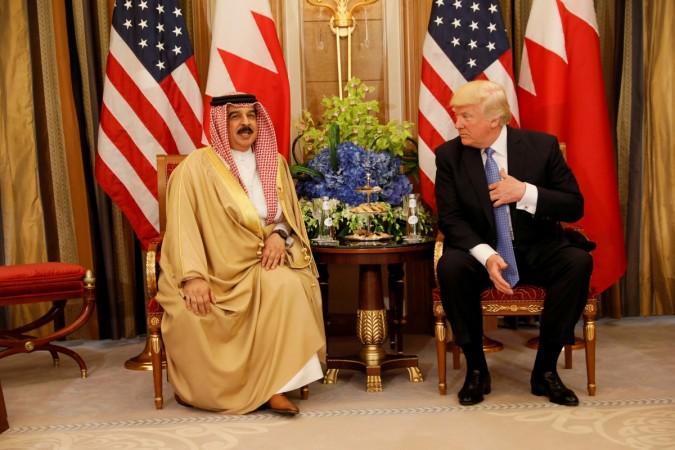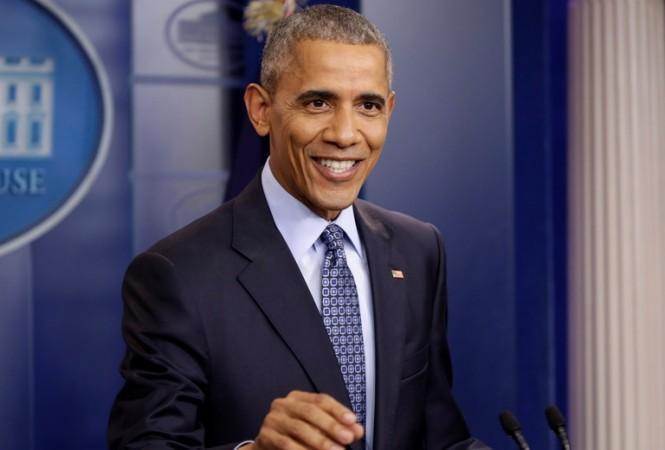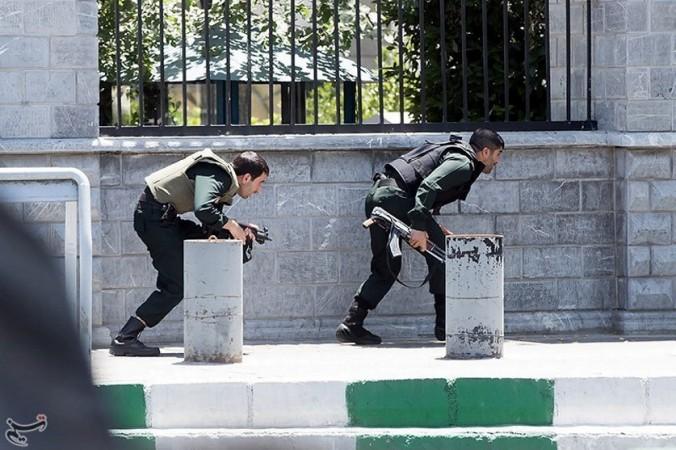
West Asia, which already has enough problems, is witnessing a series of events the culmination of which wouldn't hint at a healthy future and none else but Donald Trump, the American president who has showed enough signs of his little understanding of the region, is much responsible for the latest turn of events.
Trump is determined to undo whatever Barrack Obama had and this psychological ill has made an impact on the volatile West Asia where even the slightest of slip can invite massive disaster.
The current American president made his first foreign visit to Saudi Arabia, concluded a mammoth arms deal and formed a black-and-white alliance around Saudi Arabia to fight terrorism and especially take on Iran which many in the current administration in Washington think is a big threat to regional stability.

The Americans, in their pursuit to whole-heartedly back the Saudis, have only stoked sectarian and regional clashes that would only embolden terror instead of curbing it. Trump's fight against terror has essentially seen creating more division in a volatile region by instigating one country against another.
The Trump administration has blamed the previous Obama administration for the deteriorating situation in West Asia though reports have indicated that it has conceded that the deal with Iran was working.
Undoing Obama legacy can't be the only foundation of Trump's foreign policy
Barrack Obama had refused to take sides in West Asia and also reached out to Iran, something which had left the Saudis furious. And now with Trump scripting a U-turn in the USA's policy towards West Asia, Riyadh has felt boosted to call the shots in the regional affairs. There is no doubt that Iran will be among the topmost targets of Saudi Arabia and the two major events of boycott of Iran's friend Qatar by many Arab states including the Saudis and the terror attack in Iran will see things deteriorating too fast.
Trump's bizarre West Asia policy saw its ally in the region and host of its biggest air base – Qatar – facing isolation and the American president even taking the credit for the development. Taking sides in the complicated regional politics of West Asia, even to the extent of alienating friends, is something Trump can do at the expense of jeopardising peace and stability in the entire region.
West Asian politics: Too complicated for a simplistic stance
To understand the complexity of the West Asian politics, consider this. Saudi Arabia and Qatar – both Sunni monarchies – are part of the US-led coalition which is fighting the Islamic State, a Sunni extremist movement that both the countries have been accused of indirectly funding over the years. Qatar is also a part of the Saudi-led coalition which is fighting the Houthi rebels in Yemen who are supported by Shiite Iran. But despite these, Qatar is still a friend of Iran, which is loathed by the Saudis.

Trump is known to be a man who dislikes 'political correctness' but he must understand that international politics needs political correctness to survive. If Trump treats international politics as the domestic American politics where political correctness is being increasingly trashed, then it is a recipe for disaster. If he has to fight against terrorism successfully, Trump needs to win more friends and not polarise West Asia, which will only boost the Islamic State by weakening the alliance to fight terror.
US needs to engage with Iran more
The US needs to engage more with Iran under Trump and not target it as part of its anti-terror programme. At a time when Iran, too, is opening up its economy and trying to reach out to the West to make up for the time lost because of restrictions, the US and the West should think of allying with it to fight the IS. Moreover, with Iran also facing a major terror attack, the Trump administration also needs to understand that even Tehran is vulnerable to the extremists and would have to chalk out a new strategy to contain them.

















